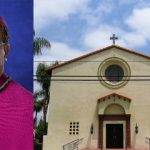At the heart of Catholic spirituality, the Eucharist represents the life-giving center of faith, the meeting point between the human and the divine. Through the extraordinary lives of three remarkable witnesses—St. Charbel Makhlouf, servant of God Don Dolindo Ruotolo, and the young saint-to-be Blessed Carlo Acutis—we can see a common thread that testifies how the Eucharist is truly, as Don Dolindo affirmed, “the center of Religion.”
On the feast day of St. Charbel, we celebrate a man whose entire existence was transformed by his profound devotion to the Eucharistic Jesus. Born in the mountain village of Bekaa Kafra in 1828, Youssef Antoun Makhlouf would become one of the Church’s most powerful witnesses to the transformative power of Eucharistic adoration.
St. Charbel: The Hermit Consumed by Eucharistic Love
St. Charbel’s spiritual journey began in childhood, when his fellow villagers called him “the saint” because of his extraordinary piety. This early devotion would mature into a life completely centered on the Eucharistic mystery. After joining the Lebanese Maronite Order and taking the name Sharbel in honor of a second-century martyr, he spent sixteen years at the monastery of Annaya before moving to the hermitage of Sts. Peter and Paul in 1875.
It was in this hermitage that St. Charbel’s true vocation as a Eucharistic mystic flourished. Each day, he would spend hours in adoration before the Blessed Sacrament—several hours before celebrating Mass and several hours after, in profound thanksgiving. His belief in the Real Presence was absolute; he truly believed in the Eucharist as the actual Body and Blood, Soul and Divinity of Jesus Christ.
The hermit’s daily routine was a testament to his Eucharistic devotion. He would kneel austerely before Jesus in the Holy Eucharist, praying quietly to Him and immersing himself completely in divine love throughout the night. He became known as “the saint inebriated with God,” so complete was his union with the Eucharistic Lord.
This profound Eucharistic spirituality was supported by his heroic practice of the monastic virtues. His obedience to his superiors was described as “angelic, not human.” He embraced poverty with total detachment from worldly goods, and his chastity reflected a heart entirely consecrated to Christ. His deep devotion to Mary, the Mother of the Eucharist, provided the foundation for his self-denial and complete consecration to God.
Despite his contemplative life, St. Charbel worked tirelessly in the fields and vineyards, demonstrating that Eucharistic devotion does not remove us from the world but transforms our engagement with it. He would leave the hermitage only when his superiors asked him to visit the sick, bringing the healing power of his Eucharistic union to those in need.
The Fruits of Eucharistic Devotion
The Lord wanted to show the fruits of St. Charbel’s unwavering faith in Jesus in the Eucharist in a most extraordinary way. Through his decades of daily adoration, spending hours united with Christ in the Blessed Sacrament, St. Charbel became so intimately united to the Eucharistic Lord that God would manifest this union powerfully through extraordinary signs and miracles.
The miracles that began during his lifetime continue to this day, with healings occurring throughout the world through his intercession. It is now said that St. Charbel’s miracles have exceeded in number those of many other saints. The Lord is proving through these countless miracles that the devotion to the Eucharist lived by St. Charbel is true and bears eternal fruit.
When St. Charbel died on Christmas Eve 1898, while celebrating the Divine Liturgy, his final words were the prayer he could not finish: “Father of truth, behold Your Son, the sacrifice in whom You are well pleased. Accept Him who died for me . . .” Even in death, he remained united to the Eucharistic sacrifice.
Don Dolindo: The Eucharistic Theologian
In the pages of his autobiography, Don Dolindo reveals a profound relationship with the Eucharistic Jesus that remarkably parallels St. Charbel’s devotion. Jesus Himself, speaking to Don Dolindo, explains the centrality of the Eucharist in the economy of salvation and in the spiritual life of the faithful. Don Dolindo would later write: “The Eucharist constitutes for us a new life, and the Church logically calls it the center of Religion.”
Don Dolindo describes moments of deep intimacy with the Eucharistic Jesus that echo St. Charbel’s experience. The real presence of Christ in the Eucharist was not for Don Dolindo a mere theological theory, but a living and transforming experience. As he writes: “That Communion transfused a great life into my soul. I, who was previously arid, felt revived like a plant that is watered with healing water.”
Like St. Charbel, Don Dolindo understood that Jesus wants to make the faithful “living temples of His Eucharistic love,” instruments of a spiritual renewal that must take place in the Church. The miracles of Don Dolindo are manifested primarily through his profound spiritual writings, which continue to nourish souls and lead them to deeper Eucharistic devotion.
Carlo Acutis: The Digital Apostle of the Eucharist
If St. Charbel and Don Dolindo lived and testified to this profound Eucharistic spirituality in earlier centuries, the young Blessed Carlo Acutis represents an extraordinary contemporary manifestation of the same devotion.
The life of Carlo Acutis, centered on the Eucharist which he defined as his “highway to Heaven,” perfectly embodies what Don Dolindo described and what St. Charbel lived. Carlo, with his daily devotion to the Eucharist, experienced the same transformative union that characterized the Lebanese hermit’s spiritual life.
The exhibition on Eucharistic miracles, created by Carlo and now spread throughout the world, represents his particular charism—bringing the same Eucharistic faith that sustained St. Charbel to the digital age. Carlo’s miracles are manifested through the spread of Eucharistic devotion in the 21st century through imagery, internet websites, and Eucharistic miracle exhibitions that inspire countless souls to deeper faith.
A Universal Call to Eucharistic Devotion
The testimony of St. Charbel, Don Dolindo, and Carlo Acutis represents a powerful call for Catholics today. Each in his own time and manner demonstrated that the Eucharist is truly the source and summit of Christian life, capable of transforming ordinary human existence into extraordinary sanctity.
St. Charbel’s hours of daily adoration, his angelic obedience, his tireless work, and his complete consecration to Mary, Mother of the Eucharist, produced a holiness that continues to work miracles throughout the world. His life proves that when we give ourselves completely to the Eucharistic Jesus, He transforms us into living instruments of His divine love.
As we celebrate St. Charbel’s feast day, we are reminded that the path to sanctity remains the same across centuries: profound faith in the Real Presence, time spent in adoration, complete obedience to God’s will, and total self-giving to Christ in the Eucharist. Whether in a Lebanese hermitage, in early 20th-century Italy, or in the digital age, the Eucharistic mystery continues to sanctify those who approach it with faith, humility, and love.
The lives of these three witnesses invite us to rediscover the centrality of the Eucharist in our own lives, to spend time in adoration before the Blessed Sacrament, and to allow Christ to transform us completely. Through their intercession, may we too become “living temples of the glory of the Father,” witnesses to the power of the Eucharistic mystery that sanctifies all who believe.
In honoring St. Charbel today, we celebrate not only a Maronite hermit who became a saint, but a universal model of Eucharistic devotion whose example continues to inspire souls across the globe to seek the transformative power of Jesus Christ, truly present in the Blessed Sacrament.
Author’s Note: If you would like to read more about Don Dolindo’s spirituality, check out those books: Don Dolindo’s Books.
Ruotolo, D. (2020). Fui chiamato Dolindo, che significa dolore: Pagine di autobiografia. Casa Mariana Editrice – Apostolato Stampa.
Family of Saint Sharbel. (n.d.). Biography of Saint Sharbel. https://www.familyofsaintsharbel.org/biography.html

















